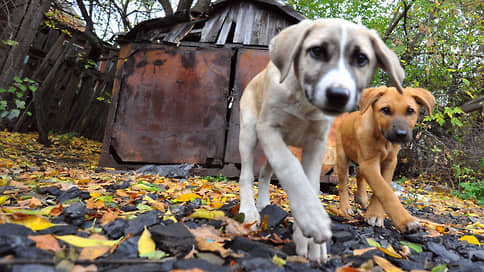The State Duma offered to create a unified response system to attacks of homeless dogs

In Russia, a system of response to citizens’ appeals regarding attacks of homeless dogs may appear. State Duma deputies announced the corresponding bill. One of the proposed ideas is to create such a system on the basis of the already existing emergency service « 112 ». Nevertheless, deputies and relevant departments have not yet decided on who and how should react to reports of animals.
On May 12, a meeting of the working group “to improve legislation aimed at protecting citizens from attacking homeless animals” was held in the State Duma. Recall, it was created in February 2025 on behalf of the speaker of the lower house of parliament Vyacheslav Volodin. Then he asked his colleagues to prepare the « legislative initiative to strengthen the protection of citizens from attacks by stray dogs. » Soon, a working group led by the head of the Duma Committee on Family Affairs Nina Ostanina (Communist Party) introduced a bill that gives the regions the right to kill homeless animals after the deadline for their maintenance in the shelter. The initiative, which has become the subject of acute public discussion, has not yet been considered: it should be an official review of the government (when this happens is unknown). There are no unified positions of the regions regarding the bill, some of the subjects are opposed to the document (see “Kommersant” of March 19).
In parallel with this, the working group is developing a number of other initiatives, including the bill on the creation of a « system of response to citizens’ appealing to animals to harm their life and health and the threat of their infliction. » “This is hardly the most important question, because each of us receives numerous complaints about the accumulation of hopeless dogs that pose the danger to both people and the animals themselves,” said Nina Ostanina. The deputy noted that today the local administrations responsible for hopeless dogs do not have an instrument of response. “They refer to the fact that these animals have tags, they are sterilized. It seems to be vaccinated, sterilized, but the teeth remain – (they) bite, eat and so on. ” The deputy Biysultan Khamzaev (United Russia) supported Madame Ostanin with the data of Rospotrebnadzor about the “bites, scratches and establishing” Russians by homeless animals: “For 2024, 360 thousand bites in the country (recorded), of which 237 thousand dogs”. Most of all such cases were registered in the Central Federal District. “Statistics say that Moscow and the Moscow region are the most problematic in bites,” the deputy concluded.
One of the authors of the bill, deputy Vladimir Samokish (United Russia) considers it necessary to create a unified federal response system. He proposed to appoint the government responsible for the typical procedure for its organization. It is possible to create such a system, the deputy says, on the basis of the 112 emergency service. “The service will already be the main tool for a person to score three numbers, reported or shot a video, moved somewhere and so on,” Mr. Samokish explained.
In the course of the unfolding discussion, it turned out that if citizens have the opportunity to call “112” in the event of dogs of dogs, it is not clear who will have to respond to these messages. “Today, pets are not the subject of our supervision, with the exception of service dogs,” said Elena Tsvetkova, a representative of Rosselkhoznadzor. She said that the department has its own system for registering agricultural animals and some regions began to register dogs in them. « We will register, and who will take this data further and work with them? » – asked Mrs. Tsvetkova.
The deputy Raisa Karmazin (United Russia) objected, saying that there are actually already existing groups of response to homeless animals. However, to the question of Mrs. Ostanina, at what number citizens can call there, Mrs. Karmazina could not answer. As a result, Nina Ostanina asked the Ministry of Natural Resources to develop standard norms for the development of a unified response system, having studied the experience of Tatarstan, Yamalo -Nenets Autonomous Okrug and the Krasnodar Territory. “We have political will, we are ready to introduce a bill this week,” the deputy concluded.







